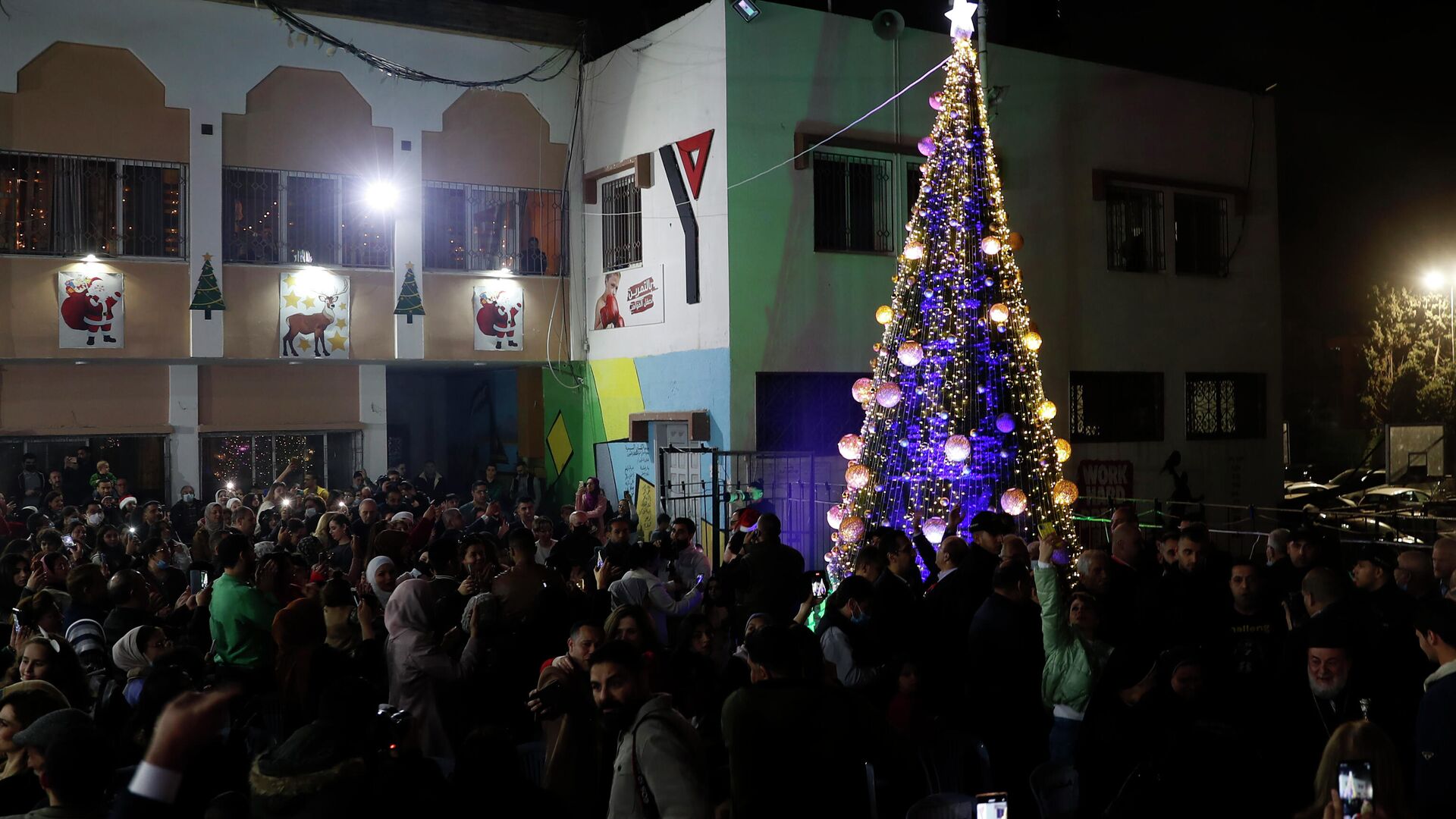As Conditions in Gaza Improve, Christians in the Enclave Prepare to Celebrate Christmas
06:58 GMT 23.12.2021 (Updated: 09:22 GMT 05.12.2023)

© AP Photo / Adel Hana
Subscribe
Before 2007, when Hamas took over Gaza, the Strip was home to thousands of Orthodox Christians. But persecution by the Islamic group coupled with constant wars and economic hardships have prompted many to flee. Now this community only has a few hundred members.
In Israel and the West Bank, multiple cities and towns are preparing for Christmas. Trees have been decorated and placed in central locations, markets have been set up, and local authorities entertain the crowds with various attractions and events.
Festive Season?
But in the Gaza Strip, that is home to a tiny Christian community, public festivities are nowhere in sight.
"In the past, during the era of late leader Yasser Arafat, we were allowed to arrange public celebrations", said Haitham Saba, a 42-year-old Orthodox Christian from Gaza.
"Back then, we were able to light the Christmas tree in Al Jundi Al Majhoul Square. Those days are gone. Now we can only celebrate our holidays in community institutions", he added.
Persecuted Minority
The condition of Christians in the coastal enclave has taken a turn for the worse since the Islamic group Hamas took over the Strip in 2007, driving out forces loyal to President Mahmoud Abbas.
Some Christians in the Strip have even faced forced conversions. Their churches have been targeted. Their children have been discriminated against in schools, while attacks on their businesses have become a common phenomenon.
Wars between Israel and Hamas haven't helped the situation either. From 2008 to the present, the two rivals have engaged in four major confrontations during which the Jewish state bombarded Gaza, destroyed its infrastructure, and killed and injured thousands.
For many Christians that constant fighting became so unbearable that they decided to leave and over the years the numbers of Christians in Gaza has dwindled from several thousand to only several hundred.
Many have relocated to the United States and various European countries. Others went to live in the West Bank, controlled by Fatah, where the attitude towards Christians is milder.
Saba says he understands those who opted to leave everything behind and relocate, especially as "Gaza has become an unsafe place for children". But the father of three also believes that he won't be following their path.
"I love this place so much", he says. "I have a good job here and a nice house. I can travel wherever I want, so why should I leave?"
Economic Hardships
A "good job" and a "nice house" are luxury commodities for most people in Gaza. The economic situation in the Strip has rapidly deteriorated since the takeover by Hamas, deemed a terrorist organisation by Israel, and the decision by authorities in Tel Aviv to impose a full blockade on the enclave to curb the threat of the Islamic group.
In 2020, it was estimated that the years of the Israeli blockade have cost the Strip $16.7 billion in economic losses. Gazans, many of whom were employed in Israel, were barred from leaving the enclave pushing many into the circle of unemployment and poverty. For Christians, the blockade also meant that they could not visit their holy places in Jerusalem and Bethlehem.
"My family used to celebrate Christmas in Bethlehem, but when Israel prevented us from travelling we were forced to stay in Gaza, and we marked that festivity in the Church of Dir Latin. Then came COVID-19 and that option was also taken away from us", explained Saba.
The first cases of the coronavirus in the Palestinian territories were recorded in March 2020. Reacting quickly to the situation, local authorities implemented a number of measures aimed at curbing the spread of COVID. They shut down public offices and private businesses. They also banned mass gatherings and prayers in mosques or churches.
Recalling those "tough" days, Saba says the situation was unbearable. Now he is hoping for a better future.
The coronavirus situation seems to be stable in Gaza, where authorities recently registered only 1,693 active cases and eased some of the measures introduced earlier.
The financial situation has also improved somewhat following a change of government in Israel and the new coalition's decision to lift some of the restrictions imposed on the seaside enclave.
"It has been the best year in the recent period of time. We are now allowed to celebrate our holidays after a hiatus of two years. And we can also visit our family in Bethlehem, and see our relatives there".


